Heavy haul trailers are lifelines in industries like oil and gas, wind energy, and forestry.
To ensure safe and efficient performance on long journeys, trucking companies need to perform vigilant maintenance on their heavy haul trailers.
Proper maintenance is essential for maximizing uptime, minimizing downtime, and safeguarding your investment.
This blog offers you practical tips on trailer maintenance to help you streamline your routine inspections and maintenance efforts.
When you maintain heavy haul trailers in their best possible condition, you’ll make your heavy haul operations dependable, safe, and efficient.
Brake System Checks | Pre Trip Inspection
Conduct thorough inspections of the brake system, including the brake pads, rotors, brake drum, slack adjusters and hydraulic components.
First, check your brake pads for wear and tear. You should have at least a 1/4 inch of padding with no signs of cracks or grease.
Ensure that brakes are adjusted properly and that there are no leaks in the hydraulic lines or fittings.
Before leaving on your next route, get in the cab and pump your brakes to test them. If you hear any unusual noises or see warning signs on your dash, your brakes most likely need professional maintenance or repair.
Tire Pressure | Fuel Efficiency & Safety
Tire pressure maintenance is crucial for heavy haul trailers, impacting safety, performance, and costs.
Regularly check your trailer tires to avoid under-inflation, which accelerates tire wear, reduces fuel efficiency, and risks blowouts under heavy loads or high speeds.
Use a reliable gauge and refer to manufacturer recommendations for proper pressure levels, and perform visual inspections for damage. Modern heavy haul trailers utilize automatic tire inflation systems and tire pressure monitoring systems for real-time alerts.
Proper inflation helps boost fuel efficiency, vehicle stability, traction, and handling – crucial for challenging terrains. Additionally, it reduces maintenance costs by extending the lifespan of your tires.
Wheel Alignment
Schedule periodic wheel alignment checks to ensure that the trailer’s wheels are properly aligned.
Here are some signs your wheels are out of alignment:
-
Uneven Tire Wear: Irregular wear patterns on the tires, such as excessive wear on one side or in specific areas.
-
Off-Center Steering Wheel: Your steering wheel is not centered when driving straight.
-
Drifting or Pulling: Your trailer veers to one side without driver input.
-
Vibrating Steering Wheel: Your steering wheel shakes or vibrates.
Misaligned wheels can cause uneven tire wear and affect handling and stability, impacting overall safety.
Frame and Chassis Inspection
Regular visual examinations of the frame and chassis are essential to identify any signs of cracks, corrosion, or bends, especially in areas exposed to harsh weather conditions. Pay close attention to welds and joints for signs of incomplete welds, cracking, or loose bolts, and address any issues promptly to prevent structural weaknesses.
When inspecting suspension components, ensure leaf springs, airbags, and hangers/shackles are securely attached to the frame and free from wear or damage. Similarly, check crossmembers and bracing for corrosion, deformation, and loose or damaged components.
Securely fasten electrical and brake lines to the frame, checking for chafing and damage. Replace any damaged lines promptly to prevent shorts or brake failures. Focus on load-bearing areas such as gooseneck/fifth-wheel connections, rear frames, and axle mounts to ensure they are in good condition and properly aligned.
Implement preventive measures such as keeping the frame clean, applying protective coatings, and storing the trailer properly when not in use. By maintaining a well-inspected frame and chassis, you contribute to the safety and reliability of your heavy haul operations.
Cargo Securement Equipment
Cargo securement equipment is essential for the safe transport of heavy haul trailers. Before each journey, conduct a thorough inspection of chains, binders, straps, and ratchets, looking for wear, stretch, and deformities. Replace any damaged components promptly.
Ensure proper functionality of winches and winch bars, and be mindful of load limits to avoid overloading. Store equipment properly to prevent rust and damage, and regularly retighten securement devices during transit to counteract loosening.
Document inspections and repairs for compliance with regulations. Prioritizing maintenance ensures the safety and reliability of heavy haul operations.
Trailer Flooring
Maintaining the trailer flooring is essential for ensuring safe loading and unloading conditions in heavy haul operations. Regular visual inspections of the floor before and after each trip are crucial, focusing on areas prone to wear, damage, and rot, especially near loading and unloading points.
Different materials, such as wood, plywood, or aluminum, require specific care techniques. For wooden floors, attention should be given to delamination, warping, and soft spots, with protective coatings applied to resist moisture and prevent rot. Similarly, aluminum or steel floors must be checked for corrosion or buckling, with prompt action taken to address any issues.
Proper load distribution is vital to prevent stress on specific areas, and anchor points for cargo securement devices should be inspected for structural integrity. Timely repairs or replacements are necessary for damaged sections, with patching for small holes and full replacement for severe damage.
Regular maintenance, including cleaning and inspection of both the top and underside of the floor, ensures optimal safety and reliability in heavy haul operations, reducing the risk of accidents due to compromised flooring.
Hitch and Coupling Components
Regularly inspecting hitch and coupling components is essential for reliable towing in heavy haul operations. Before each trip, visually inspect the ball mount, coupler, and safety chains for signs of wear and corrosion. Ensure the coupler engages and disengages smoothly, and lubricate the ball mount and coupler to reduce friction during attachment and detachment.
Check the locking mechanism to verify secure attachment, and promptly replace any worn parts to maintain safety. Safety chains should be taut but not overly tight, free from damage, and properly attached under the coupler to prevent disconnection.
Inspect the breakaway system, ensuring the battery is charged, and the switch activates the brakes when needed. Additionally, check electrical connections, including the trailer plug and vehicle socket, for damage or loose connections.
Ensure all lights, including brake lights and turn signals, function correctly. If using a weight distribution hitch (WDH), inspect bars for wear or bending and adjust tension as needed for even weight distribution.
Electrical System Maintenance
Ensuring the integrity of your heavy haul trailer’s electrical system is paramount for safety and compliance. A routine visual inspection before each trip is essential, scanning the entire system for signs of wear and deterioration. Watch out for frayed or exposed wires, corroded connectors, and ensure all lighting fixtures are intact and functioning correctly.
Regular maintenance involves cleaning connectors with a wire brush or contact cleaner and tightening any loose connections. Ground connections must be secure to maintain optimal lighting performance. Regularly checking and replacing burnt-out bulbs, cleaning lenses, and ensuring watertight seals on lighting fixtures are vital steps to maintain visibility and prevent moisture damage.
Don’t forget to inspect the trailer plug and vehicle socket for damaged or loose wires, and test all lighting functions to ensure they’re working correctly. For trailers equipped with a breakaway system, it’s crucial to inspect the battery’s charge and functionality and test the breakaway switch—a critical safety feature that activates the brakes in emergencies.
Documenting inspections, repairs, and replacements is essential for compliance with regulations. Additionally, ensure emergency lighting (if present) is functional and reflectors are visible for added safety on the road.
Suspension System Maintenance
Maintaining the suspension system of your heavy haul trailer is vital for ensuring safety and performance on the road. Here’s what you need to know:
Regular visual checks are essential for leaf springs, as even small cracks or wear patterns can lead to significant failures. Applying grease to bushings and shackles reduces friction, keeping your suspension operating smoothly.
Inspect airbags (if equipped) for leaks or sagging, and maintain proper air pressure to ensure stability and control. Promptly replace worn shock absorbers to maintain stability and ride quality, as they play a crucial role in absorbing road impacts.
Regularly inspect suspension bushings for wear and deterioration, as worn bushings can affect alignment and handling. Proper alignment and balance are essential for safe operation and ride quality.
Adjust suspension components based on load weight to prevent overloading and excessive stress on the system.
Lubricate
Lubricating critical components like brakes, cams, and slack adjusters is vital for heavy haul trailer maintenance.
Apply lubrication to moving parts such as hinges, pivot points, and landing gear mechanisms to prevent wear and corrosion.
Lubricating your wheel ends minimizes friction, wear, and helps to prevent gear oil leakage.
Brakes rely on lubrication to prevent friction and heat buildup, enhancing braking performance and longevity. Similarly, cams and slack adjusters need regular lubrication to reduce wear, maintain proper function, and prevent corrosion.
Use a high-quality lubricant suitable for the specific application and environmental conditions. Proper lubrication ensures smooth operation and extends the life of these parts. By incorporating regular lubrication practices into your maintenance routine, you can optimize performance and minimize the risk of costly breakdowns.
Dielectric Grease
Dielectric grease is indispensable for heavy haul trailers, safeguarding electrical systems from corrosion and ensuring reliable performance.
By applying it to lighting connections, electrical components, and harnesses, you create a protective barrier against moisture and corrosion, which is crucial for reliable conductivity.
The non-conductive and lubricating properties of dielectric grease make it effective in extreme temperatures, ensuring uninterrupted electrical performance – even in harsh environments.
Regular application of dielectric grease extends the lifespan of electrical components, minimizing costly failures and downtime.
Lighting
Verify that all lights are functioning correctly. Properly lit trailers enhance safety and prevent accidents.
To ensure safety on the road, inspect your headlights before and after your trip to make sure they are clean, functional, and well illuminated.
Even before burning out completely, headlights, tail lights, and brake lights can lose visibility, minimizing your viewing distance.
To avoid driving with lessened visibility, replace your bulbs at regular intervals. LED lights can last up to 50,000 hours, while halogens last from 500 to 1,000 hours.
Cleanliness & Corrosion Prevention
Protect your trailer body from corrosion by regularly looking for any signs of rust or damage.
If you find minor rust or corrosion, promptly remove the rust with a grinder or chemical solution, treat the area with a rust resistant paint, and regularly inspect rust-prone areas for damage.
Major rust or corrosion can impact the structural integrity of your trailer – especially at critical components like frame members, crossbars, joints, and load bearing structures. In these situations, seek guidance from qualified mechanics or engineers to assess the severity and recommend appropriate steps.
To prevent corrosion and damage, keep your trailers clean, free of debris, and store them in dry, covered areas. Wash the exterior regularly and apply protective coatings or sealants to vulnerable areas such as exposed metal surfaces and undercarriage components.
Document Your Maintenance Procedures
Consistency is key when it comes to heavy haul trailer maintenance, with every step in your maintenance procedures playing a crucial role towards ensuring the safety and efficiency of your trailers, your load, and everyone on the road.
By documenting your maintenance procedures into a preventive maintenance routine, you create a comprehensive guide that ensures no steps are skipped or overlooked.
Skipping steps or deviating from established procedures can compromise the integrity of your trailers and increase the likelihood of breakdowns or safety issues.
Whether it’s checking tire pressure, inspecting brakes, or lubricating moving parts, putting proper procedures into place with a standardized process helps minimize the risk of errors and preserves the reliability and longevity of your heavy haul trailers.
Log Your Preventative Maintenance Work
Maintaining a detailed log of all maintenance work performed on your heavy haul trailers is essential for accountability and continuity.
Logging maintenance activities allows you to track when specific tasks were completed, who performed them, and any observations or issues encountered during the process.
Your maintenance log becomes a valuable record that serves as a reference point for future inspections and troubleshooting. Maintenance logs can help identify patterns or trends in maintenance needs, enabling you to proactively address potential issues before they escalate.
Additionally, a maintenance log provides crucial documentation for regulatory compliance and warranty claims. Having a comprehensive record of your maintenance program demonstrates your commitment to safety and equipment upkeep, which can be invaluable in the event of an audit or inspection.
Invest in the Best
Start by purchasing high-quality trailers with premium materials and quality construction.
While quality trailers might cost a bit more upfront, they pay off in long-term dependability, providing you with proper and safe operation for years to come.
Look for trailers designed with easy maintenance in mind. Components like bushings and axle seats should be accessible for hassle-free replacements. Solid clamp-in bushings outlast slotted designs, and extra-long, contoured axle seats reduce stress on welds.
Peerless
Peerless is a leading custom trailer manufacturer based in Penticton, BC, Canada. With over 75 years of experience, Peerless has evolved into a trusted global supplier of high-quality long haul trailers at competitive prices.
Renowned in the oilfield, forestry, and construction sectors, we uphold a legacy of performance and excellence. As industry leaders, we are committed to maintaining this tradition well into the future.
Explore our inventory for the perfect trailer to meet your equipment loading and hauling needs, or reach out to our team for assistance with parts, maintenance, or rig outs.
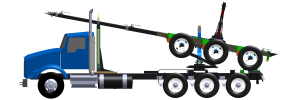
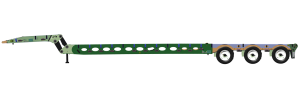

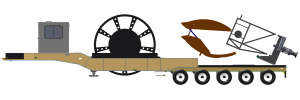
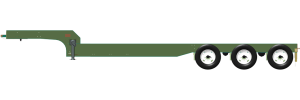
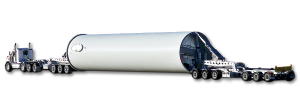
0 Comments